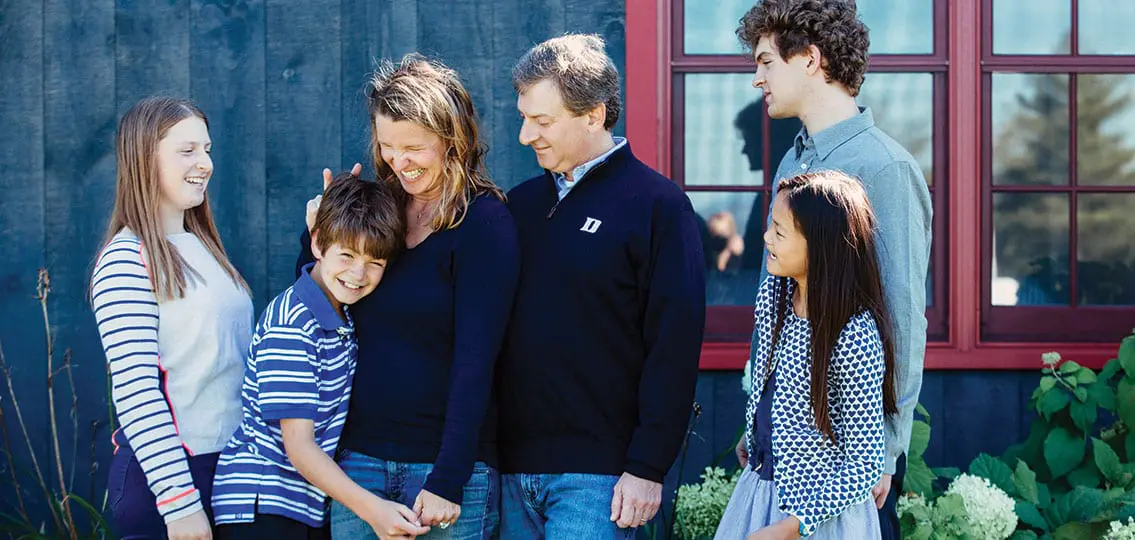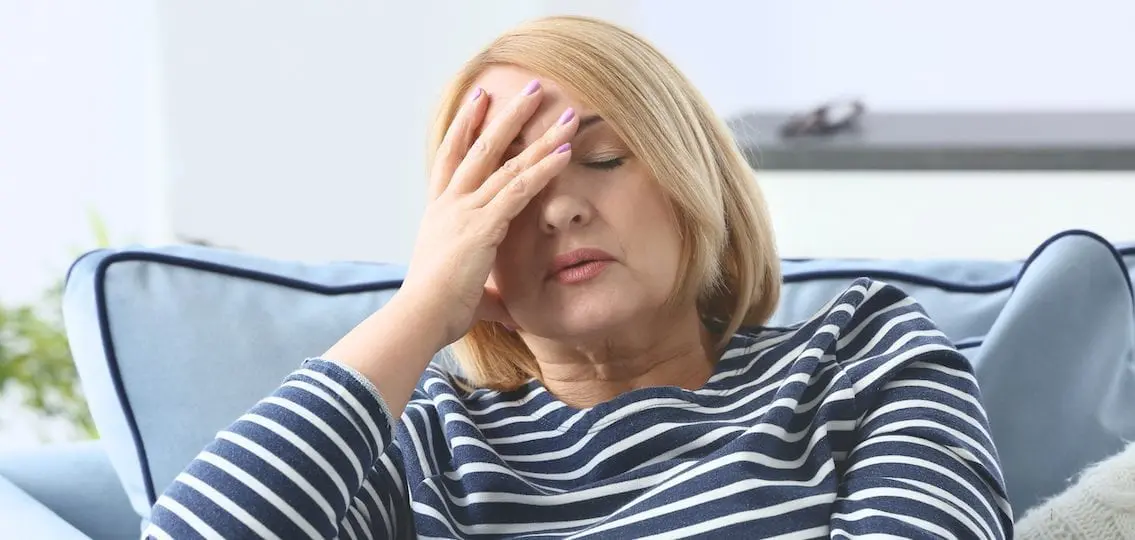Parenting mistakes? We’ve made a few. We, the editorial staff at Your Teen, think and write about teens all day—and there’s nothing like expert advice and the wisdom of other parents to really show you where you messed up with your own kids. Looking back, we know we all did and said things as parents that we wish we could do differently. We’re still learning, too—but we don’t mind sharing our mistakes.

The Mistakes Parents Make
I believe our biggest mistake was not being tech savvy enough.
Checking phones more often, taking phones out of the bedroom at night. We were vigilant about not allowing phones at the dinner table, but I fell into the trap of “I need my phone for homework.” Yes, at times they do, but more often than not they were on social media or facetiming friends—having nothing to do with homework. Our struggle/rationale was we felt natural consequences would at some point kick in, such as failing grades and total exhaustion. But, truthfully, that did not happen. We also believed that before college our kids would need to self-regulate. After all we weren’t going with them to college. But looking back, I still feel that we should have been more on top of it.—Mindy Gallagher, Social Media Manager
I feel that I spent so much time “parenting” that I didn’t take time to just enjoy my children.
I’d set boundaries and expectations of myself as a parent and I felt that I had to live by them at all times. I believed that consistency was paramount to raising children and I didn’t want to veer from that belief. Now I look back and think that there were times where I could have been more relaxed and let the rules slide every now and then. I was afraid that if I stopped parenting for even one day, that would be the beginning of a downward spiral. But my girls still like me, so maybe I wasn’t as strict as I thought.
Also, I don’t like cooking and would rather go out for every meal. Since I never encouraged my girls to cook, they now eat out instead of cooking at home. My older daughter has started to cook for herself because she doesn’t have the funds to eat out every day—but she did not get that from me.—Eca Taylor, Circulation Manager
I’ve made mistakes in the way I fed my kids.
When they were tiny, I made my own baby food, limited their exposure to sweets, and succeeded in getting them to eat veggies. I was so pleased with myself. Then, as they became more independent, it all fell apart. They backed away further and further away from veggies and were drawn to carbs of all kinds. I, in turn, was both too strict and too loose. I fussed too much over what they were eating (or weren’t) at the dinner table, took it personally when they didn’t like what I made, and took too much control over things like Halloween sweets (hiding them away and doling them out in bits). On the “too loose” side, I didn’t (and don’t) much restrict how and when they snack, meaning that they’re often fairly full by the time they arrive at the dinner table.
Recently, I’ve been learning more about intuitive eating and how to raise kids that can eat in a healthy, guilt-free, and satisfying way, and I wish I’d read it all years ago. I’m still making a lot of mistakes—heck, I’m still learning what my mistakes even are—but at least I think that we (including myself!) are on a path towards a less fraught and more nourishing relationship with food.—Sharon Holbrook, Managing Editor
One parenting mistake (of many) that I would like a do-over on: Allowance.
We never gave our kids a regular allowance, partly because they were pretty reasonable about their requests. It seemed easier to just dole out the occasional twenty bucks for a movie and a milkshake with friends. They were happy to wait to get bigger ticket items, like a nice pair of headphones or trendy boots, as a birthday or Christmas present. And when they wanted to travel with the band or orchestra, they chipped in some of their babysitting and pet sitting money, along with our help. All good, right?
Maybe not. By not giving them an allowance we missed the opportunity to help them develop budgeting skills. This is showing up with our college-age daughter, whose bank account dwindles as she dines out instead of using the dining hall meal plan or buys some comforts for her dorm room off of Amazon. These are not unreasonable things to do—but when she wants to go out with friends, or make plans for spring break, she bemoans the fact that she has no money. We’ve decided to start giving her a monthly allowance at college so she can buy her own “extras”—toiletries, dining out, etc.—or choose to save that money and see how it adds up. Better late than never, right?—Jennifer Proe, Sponsored Content Editor
WAY TOO MUCH SARCASM in the house—from both of us.
For real. Now it’s hard to get a straight answer out of anyone. I am banking on the fact they will be quick witted adults, but as teens, UGH.
Oh, here’s another one: I wish we had talked more about politics. I grew up in a house that didn’t talk about politics at all, and feel very unprepared for many conversations, and then we have done the same. We didn’t prepare them at all. Again, UGH.
Another one—didn’t force them to make beds. Ugh.—Stephanie Silverman, Publisher
MY BIG MOUTH!
I process things by talking them over with friends and I am a strong believer that sharing stories of our imperfect parenting and imperfect kids helps us all feel a little bit less alone. However, I have had to work very hard (not always successfully) to respect that as my kids get to middle and high school, they have more ownership over the events going on in their lives. Whereas in elementary school they couldn’t care less about what I talked about with their friend’s parents, now my conversations with other parents can make them feel disenfranchised, worried about their reputation, or stressed that they’ll be seen as the one who ratted out bad behavior.
I’ve told them that I can’t give up the support of my friends entirely, but I try to avoid using any names when talking to other parents and I have limited the people I share fully with to a small circle of long-time trusted friends. Also, talking with parents of older children, who have made it through the teen years and talking to parents whose kids go to different schools has been a useful way for me to get the emotional support I need, but give my kids the privacy they want.
The other way that my big mouth gets me into trouble is reacting during an emotionally charged situation. My 15-year-old just reminded me of something I said back when he was in 8th grade and we were battling over academics on a daily basis. Seeing that he still carried the hurt of my comment made in the heat of an argument broke my heart. I apologized to him (again) and am trying to remember that it is better to give myself a “time-out” from certain conversations than to join the teenage drama and say things that may become lifelong wounds.—Emily Vitan, Special Projects Editor
I think I had a lot of vicarious anxiety when my kids were in high school.
I worried about their academics, their test scores, that one C in Algebra II, where they would apply to college, whether they would get in, whether they would resent us if we made them to go to colleges we could afford instead of their dream colleges—I could go on and on about the things that kept me awake with my stomach churning at 2:30 a.m.
In hindsight, I can see that this was not what my kids needed from me in what was the certainly most stressful period of their lives. What they really needed from me was calm support, a hug, the assurance that we loved them no matter what, that they would end up where exactly they were supposed to be, and that it would all work out (which it did). I wish I hadn’t let my own anxieties compound theirs.—Jane Parent, Senior Editor
Judging other moms.
My oldest had a group of friends who were all youngest in their families. Those parents would let their kids watch such inappropriate TV shows and movies. My oldest had a bedtime and watched PG-13 when she was almost 13. By the time my fifth was born, the dynamic had shifted. My youngest was three when my husband was taking my older son to see I, Robot (PG-13). My youngest looked at them with these sad eyes and said, “Can’t I go with the boys?” So, they took him. And I called the other moms who I had judged and apologized.
While I’m unloading, I also absorbed my kids’ failures (and successes) as my own. I loved the saying that you’re only as happy as your least happy kid. But with five of them, that left little room for happy. One summer I felt physically burdened by their emotions and my emotions. I thought I should probably take a step away from over-empathizing. It wasn’t easy at first, but I saw that eventually I could listen with more detachment. Another benefit—I was able to diffuse situations with a “That must stink” reaction rather than “They said what?” reaction.—Susan Borison, Editor
I grew up in a dysfunctional family with a mentally ill mother and an alcoholic father.
I was a geeky, introverted kid who worked hard, kept my head down and got the hell out. In my mind, my parenting mistakes are huge and terrifying. How could I not be screwing up my kids? I don’t know how to do this!
Most days, I think I’m doing it all wrong. No, I know I’m doing it all wrong. I’m too impatient, I’m too indulgent, I’m too strict, I’m not strict enough. I have no idea what I’m doing. I’m trying so hard to make sure my kids get the childhood I didn’t have, that I forget the one thing I always tell my kids when they’re feeling challenged: Just do your best. I don’t have to be perfect, I just have to be there. Show up. Do my best. Be stable, be consistent. Love them. That’s all. Why can’t I remember that? It seems like a trick, it can’t be that easy.
| [adrotate banner=”76″] |
After a decade, impostor syndrome still keeps me from relaxing into motherhood. My focus is too often on the things that are wrong instead of the things that are miraculously right. I keep thinking at some point I will get the hang of being a mom and I won’t feel like everyone else is doing it better. It hasn’t happened yet, but I’m hopeful.—Kristina Wright, Digital Editorial Manager
Deciding what should make my kids happy.
My first two children were big soccer players, and we spent a lot of the winter at the indoor field.
I often had to bring my youngest—who was three at the time—with me, who made something out of nothing by playing under the bleachers or hanging out with other littles who had been dragged along. On a rare occasion, she would complain that she was bored.
On one such day, we had been at the indoor soccer facility for several hours. Truth to be told, I was losing it, too. I became overcome with guilt, convinced that my daughter’s development was being stunted because of my inattentiveness, our between-game field trips to Taco Bell, and the hours she spent entertaining herself doing who-knows-what under the not-so-clean bleachers. Within an hour, I had signed her up for ballet class.
It was her first independent activity. I was so proud of myself for introducing her to such a great activity. I was certain she would make new friends and love the tutu. And our trip to Target was a hit.
But that’s about it.
Less than three months later, my daughter’s ballet career was over. I would take her, and she would make me sit in the studio with her. She didn’t speak to any of the girls (they were three! What was I thinking?), and I don’t think she really learned much ballet either, despite the expertise of her instructor. Ultimately, she figured out a different strategy: spectacular crying fits at home as she adamantly refused to go. It’s funny that in my effort to enrich my daughter’s life, she ended up learning how to have a tantrum.
Ironically, she had never had any such meltdowns when we went to soccer for the boys. There must have been some pretty fun dirt under those bleachers.

So, what’s the lesson in this parenting fail? Sometimes, even when we think we’re doing the right thing, it turns out to be the wrong thing. What seems so logical and in the best interest of our kids just doesn’t always pan out that way. And no kid is the same, so it’s really hard to know what to do in every situation. I wish I could say that I never made this mistake again, but that would be a lie.
But the other lesson is important, too. Everyone lived, not only to tell the story, but to laugh about it.—Jody Podl, Digital Content Editor




